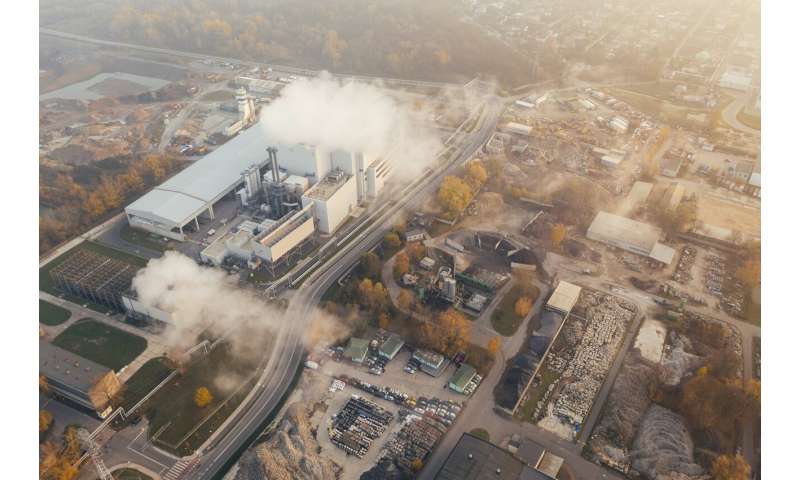One is Peak Oil, where he's turned out to be Not Even Wrong, and in a way that the Peak Oil movement has become dismissed as a cult by many. I'll have more about this in an upcoming post.
The other is climate change. And just maybe, he's not so all wrong there.
A new study claims we've already baked in a LOT of shit.
"The world is already past a point of no return for global warming," the study authors report in the British journal Scientific Reports. The only way to stop the warming, they say, is that "enormous amounts of carbon dioxide have to be extracted from the atmosphere."
"According to our models, humanity is beyond the point of no return when it comes to halting the melting of permafrost using greenhouse gas cuts as the single tool," lead author Jorgen Randers, a professor emeritus of climate strategy at the BI Norwegian Business School, told AFP.
The study said that by the year 2500, the planet's temperatures will be about 5.4 degrees Fahrenheit warmer than they were in 1850. And sea levels will be roughly 8 feet higher. The authors suggest that global temperatures could continue to increase after human-caused greenhouse gas emissions have been reduced.
Those are eye openers! But, are they true?
A lot of the people whom I call things like "neoliberal climate scientists" say they're not. Here's one of the leaders:
One expert, Penn State University meteorologist Michael Mann, told USA TODAY that he was skeptical of the computer model used in the study: "The climate model they have used is a very low complexity model. It doesn’t realistically represent large-scale atmospheric circulation patterns, such as ocean circulation, etc.
"While such models can be useful for conceptual inferences, their predictions have to be taken with great skepticism. Far more realistic climate models that do resolve the large-scale dynamics of the ocean, atmosphere and carbon cycle, do NOT produce the dramatic changes these authors argue for based on their very simplified model.
"It must be taken not just with a grain of salt, but a whole salt-shaker worth of salt," Mann said.
Another is somewhat more nuanced, thinking it's overblown but appreciating the warning.
Another expert, Mark Maslin, a professor of climatology at University College London, also pointed to shortcomings in the model, telling AFP that the study was a "thought experiment."
"What the study does draw attention to is that reducing global carbon emissions to zero by 2050 is just the start of our actions to deal with climate change," Maslin said.
Personally, I think Mann, while not QUITE as bad as a Katherine Hayhoe has shown herself to be, is a punch-puller. In other words, on a little petard-hoisting, you sometimes have to take HIM with a whole salt-shaker.
The research, even if a "stripped down" model, has some basic findings, contra Mann, that have popped up in some climate scientists' more complex models. (And I know he knows that.) The biggest is the authors' claims that we've gone past certain tipping points. Two of them are Arctic ice melt and permafrost melt.
PLUS, per where the study was first reported within the science world? Even the shibboleth Paris accords agree with one point by the new authors:
Even the more sophisticated models used in the projections of the UN's scientific advisory body, the IPCC, show that the Paris climate pact temperature goals cannot be reached unless massive amounts of CO2 are removed from the atmosphere.
To me, the biggest failures of the new research are on the prescription, not description, side.
Namely, how do we yank that much carbon out of the atmosphere and do it in a ... carbon-neutral way?
Per the link immediately above:
One way to do that is planting billions of trees. Experimental technologies have shown that sucking CO2 out of the air can be done mechanically, but so far not at the scale required.
In other words, the new authors are more honest about our screwing, but not any more helpful about how to try to avoid it.

No comments:
Post a Comment